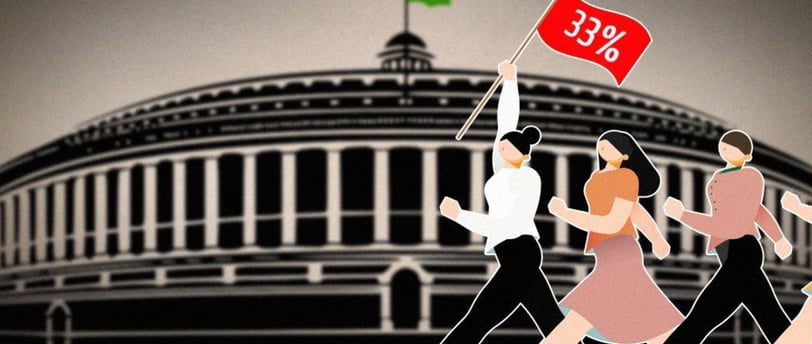Women Reservation Bill : A step back and the way forward


To oppose the bill or not is the fundamental question that comes to mind when we read or hear about the bill that seeks to give reservations to women in the Indian parliament.
However the question becomes difficult to answer when one tries to weigh all the pros and cons. And most of us come to the conclusion that probably a middle path is the best or the safest way forward.
Taking an extreme position on either side seems unrealistic and undesirable for fear of standing out.
Now whether this was a step that was long due or that it’s an idea whose time has come is not the question we are seeking to answer today.
The primary concern is to look at the bill as an event in time that has a history and what repercussions it will have in the future.
By history I don’t mean the history of the bill per se or of any particular political party but of women in general.
It’s well established that the present political system in India or elsewhere minus some exceptions has not been a natural process in the evolution of the rights and privileges with respect to women.
The process was long and painful. And no one can say that it is finished.
In this stream of thought the idea of reservation for half of the population is not new and has seen outbursts of it at different times in different places in different ways.
The idea of reservation rests on the notion of a collective identity- old or new, natural or artificial, created or imposed upon.
It can become a capital to preserve or cherish and something to nurture for a long time to come.
The fallout comes when post constructivists, now known in their mutated form as ‘wokes’ use this idea as a thesis and try to forge a sub-identity from an earlier one as a counter thesis.
Now this is not to say that an extreme position on the individualistic front is the best way forward for it disconnects the human relationship and puts over emphasis on the state.
The Rishi’s found a way out of this, and laid emphasis on Dharma which can be loosely attributed to duty in the present context.
Duty towards the state, towards the family and for our present discussion duty towards our identity.
Where one starts and where it ends, after a point of time becomes meaningless as the cycle of thesis-antithesis keeps on repeating.
To have an identity is something that an individual seeks dearly and protects it greatly up until the point it can no longer serve the purpose it was originally created for.
It’s worthwhile to note that no one identity is bigger or lesser than the other and has to play its part in the harmony of nature.
Fast forward to present times, whether reservations for women is the right step or not is not the right question. The right question would be to decide on the duties that one has to perform to enjoy those rights.
What looks like an established truth now may seem like a progressive or regressive idea in the next century. And surely the safest bet would be to leave the future to those who will live in it.
The arguments presented hitherto may seem contradictory and without a clear message, which by the way is deliberate and not unintentional.
The whole part of the exercise is to take the debate to a next level that can solve or identify the problems for the future and not leave this crucial topic submerged in the hobnobbing of empty words that will have little or no relevance once the cat is out of the box.